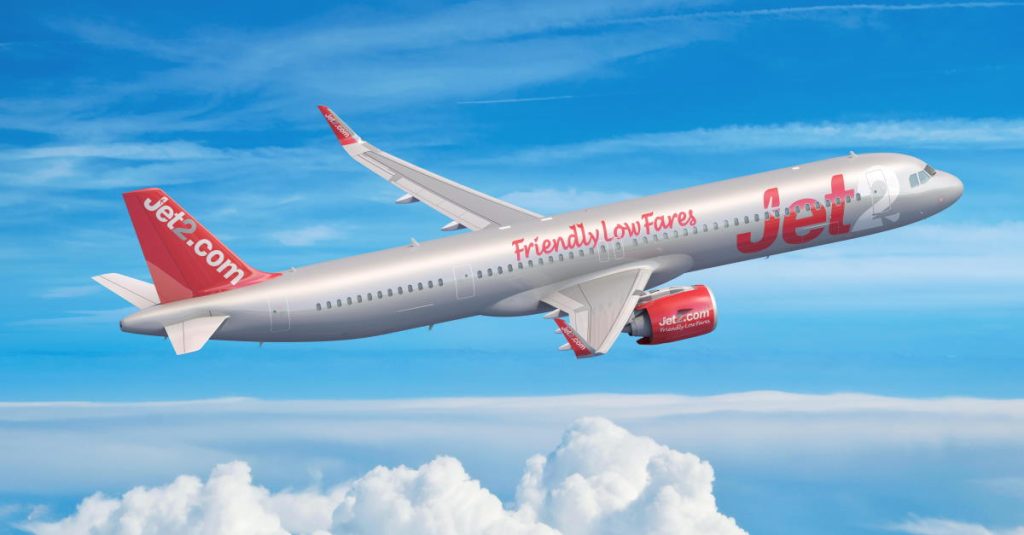The chief executive of Jet2 has issued a compelling call for governmental action to bolster the production of sustainable aviation fuel (SAF) within the UK.
Jet2 is spearheading sustainability efforts by integrating SAF into flights earlier than mandated, spotlighting the necessity for policy support.
The Need for Government Intervention
The chief executive of Jet2, one of the UK’s leading airlines, has highlighted the urgent need for government intervention in promoting the production of
sustainable aviation fuel (SAF) within the country. Limited availability of SAF puts both the industry and holidaymakers at a distinct disadvantage, he argues. This call for action comes as Jet2 announces plans to incorporate SAF blends on flights departing from Stansted airport, complementing their ongoing efforts at Bristol.
Progressive Moves by Jet2
Jet2 has proactively purchased approximately 1,000 tonnes of SAF, enough to provide a 1% SAF blend on several flights from its bases at Stansted and Bristol. By doing so, the airline positions itself ahead of the UK’s SAF mandate scheduled from 2025, under which at least 10% of jet fuel must contain SAF by 2030.
SAF, when used in its pure form, offers a reduction of lifecycle carbon emissions by up to 80% compared to conventional jet fuel. This initiative is part of Jet2’s strategy to prepare for future SAF uptake, aligning with its sustainability objectives.
Investments in SAF Production
Jet2’s parent company has invested in a new SAF production facility in the northwest of England, known as the Fulcrum NorthPoint. This plant, developed by Fulcrum BioEnergy, aims to convert waste into usable fuels.
Once operational, it is expected that Jet2 will receive more than 200 million litres of SAF from this facility. The investment reinforces Jet2’s commitment to achieving net-zero emissions by 2050, although the company hopes to accelerate this timeline.
Challenges Facing UK Aviation
Despite Jet2’s forward-looking actions, the UK remains dependent on high-cost imported fuels or pays a penalty through a ‘buy-out’ mechanism due to the lack of a robust domestic SAF industry. This situation places UK airlines at a competitive disadvantage internationally.
Steve Heapy, Jet2’s CEO, emphasises the importance of establishing a more sustainable and cost-effective supply of SAF within the UK to support not only the aviation sector’s decarbonisation efforts but also to ensure the industry remains competitive globally.
Government Policy and Industry Support
Heapy strongly advocates for accelerating the implementation of the government’s price revenue mechanism before the current timeline of 2026. Early implementation is crucial for securing investor confidence and facilitating the construction of new SAF plants across the UK.
According to Heapy, incentivising SAF production would not only boost the economy but also align with national and international environmental targets.
He notes that without such support, the transition to SAF could be financially burdensome for UK airlines and ultimately for consumers, reflecting higher travel costs.
Jet2’s Sustainability Strategy
Jet2 has outlined a comprehensive sustainability strategy, demonstrating a clear commitment to reducing its carbon footprint. In addition to its SAF investments, the airline has ordered 110 fuel-efficient Airbus A320/A321neo aircraft, with the potential to expand this to 146.
An update to this strategy is expected later this year, indicating Jet2’s ongoing dedication to environmental responsibility and its efforts to meet or exceed governmental sustainability expectations.
Conclusion and Future Outlook
Jet2’s proactive approach exemplifies industry leadership in sustainability, yet underscores the critical need for governmental support to achieve broader industry transformation.
In conclusion, Jet2’s initiatives in adopting SAF exemplify an important step forward in the aviation industry’s sustainability journey. However, without robust government support to reduce SAF costs and incentivise domestic production, the full potential of these efforts may not be realised.
It remains imperative for policymakers to accelerate mechanisms that encourage SAF development to align with global environmental goals and maintain industry competitiveness.

